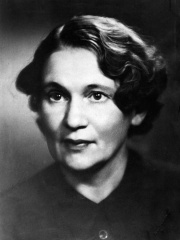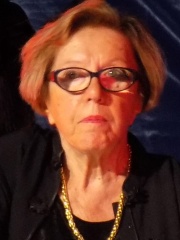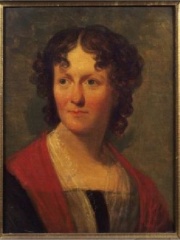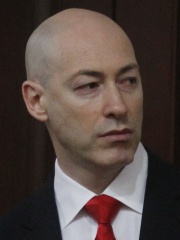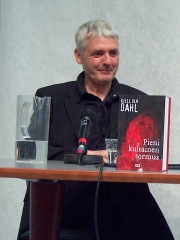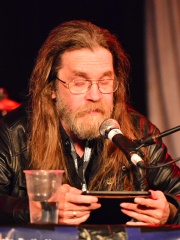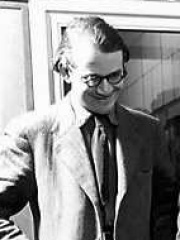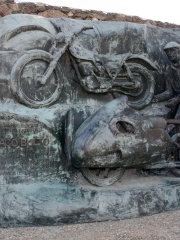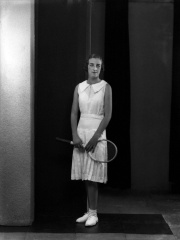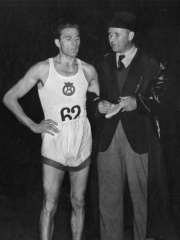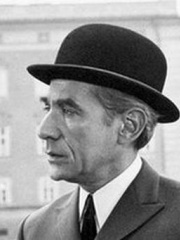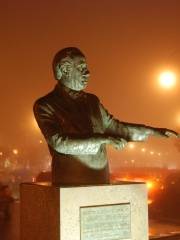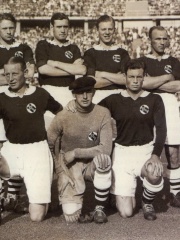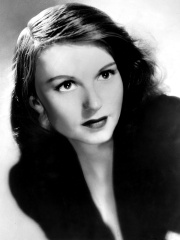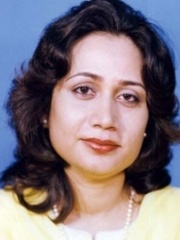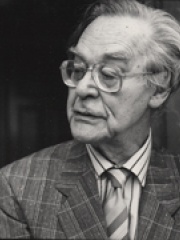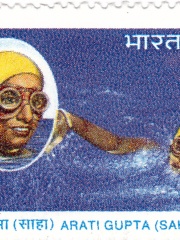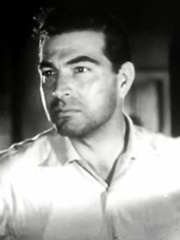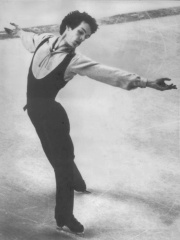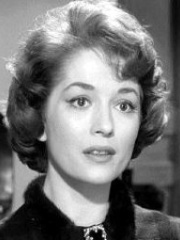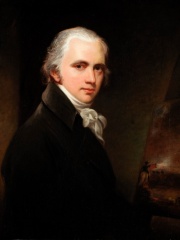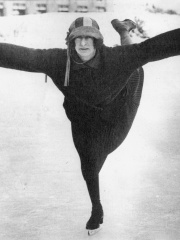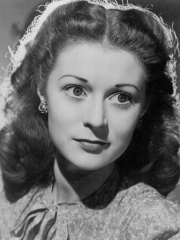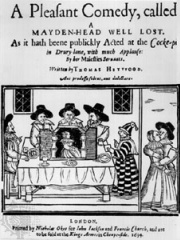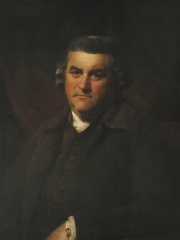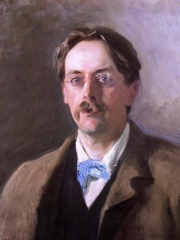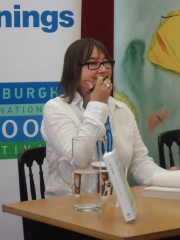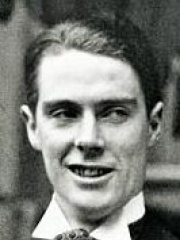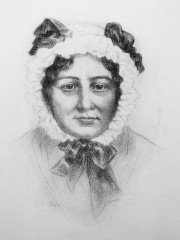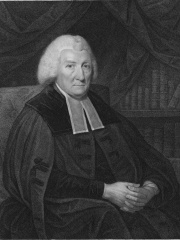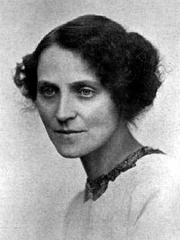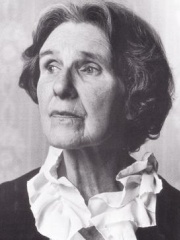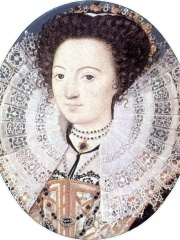Writer
Julian Symons
1912 - 1994
EN.WIKIPEDIA PAGE VIEWS (PV)

 Julian Symons
Julian Symons
His biography is available in 16 different languages on Wikipedia (up from 15 in 2024). Julian Symons is the 6,056th most popular writer (down from 5,768th in 2024), the 5,087th most popular biography from United Kingdom (down from 4,510th in 2019) and the 554th most popular British Writer.
Memorability Metrics
Page views of Julian Symons by language
Among Writers
Among writers, Julian Symons ranks 6,056 out of 7,302. Before him are Katri Vala, Danièle Sallenave, Mike Godwin, Darren Shan, Frances Wright, and Dmitry Gordon. After him are Kjell Ola Dahl, Saroo Brierley, Wolfgang Hohlbein, Jonathan Safran Foer, Cyril Collard, and Philip Yancey.
Most Popular Writers in Wikipedia
Go to all RankingsKatri Vala
1901 - 1944
HPI: 52.48
Rank: 6,050
Danièle Sallenave
1940 - Present
HPI: 52.48
Rank: 6,051
Mike Godwin
1956 - Present
HPI: 52.47
Rank: 6,052
Darren Shan
1972 - Present
HPI: 52.47
Rank: 6,053
Frances Wright
1795 - 1852
HPI: 52.46
Rank: 6,054
Dmitry Gordon
1967 - Present
HPI: 52.46
Rank: 6,055
Julian Symons
1912 - 1994
HPI: 52.44
Rank: 6,056
Kjell Ola Dahl
1958 - Present
HPI: 52.44
Rank: 6,057
Saroo Brierley
1981 - Present
HPI: 52.44
Rank: 6,058
Wolfgang Hohlbein
1953 - Present
HPI: 52.43
Rank: 6,059
Jonathan Safran Foer
1977 - Present
HPI: 52.43
Rank: 6,060
Cyril Collard
1957 - 1993
HPI: 52.42
Rank: 6,061
Philip Yancey
1949 - Present
HPI: 52.42
Rank: 6,062
Contemporaries
Among people born in 1912, Julian Symons ranks 377. Before him are József Pálinkás, Machito, George Woodcock, Francesc Xavier Bultó, Erich Schmitt, and Joan Hartigan. After him are Alfred Schmalzer, Henry Jonsson, Lukas Ammann, Eleazar de Carvalho, Øivind Holmsen, and Art Mollner. Among people deceased in 1994, Julian Symons ranks 320. Before him are Dan Hartman, Dolly Haas, Parveen Shakir, Aleksandr Chakovsky, Rolf Jacobsen, and Arati Saha. After him are Stephen McNally, Jimmy Miller, Ivan Fuqua, John Curry, Eduard Kozynkevych, and Alain de Changy.
Others Born in 1912
Go to all RankingsJózsef Pálinkás
SOCCER PLAYER
1912 - 1991
HPI: 52.78
Rank: 371
Machito
MUSICIAN
1912 - 1984
HPI: 52.78
Rank: 372
George Woodcock
WRITER
1912 - 1995
HPI: 52.72
Rank: 373
Francesc Xavier Bultó
BUSINESSPERSON
1912 - 1998
HPI: 52.60
Rank: 374
Erich Schmitt
HANDBALL PLAYER
1912 - 1979
HPI: 52.57
Rank: 375
Joan Hartigan
POLITICIAN
1912 - 2000
HPI: 52.50
Rank: 376
Julian Symons
WRITER
1912 - 1994
HPI: 52.44
Rank: 377
Alfred Schmalzer
HANDBALL PLAYER
1912 - 1944
HPI: 52.35
Rank: 378
Henry Jonsson
ATHLETE
1912 - 2001
HPI: 52.24
Rank: 379
Lukas Ammann
ACTOR
1912 - 2017
HPI: 52.22
Rank: 380
Eleazar de Carvalho
CONDUCTOR
1912 - 1996
HPI: 52.18
Rank: 381
Øivind Holmsen
SOCCER PLAYER
1912 - 1996
HPI: 52.11
Rank: 382
Art Mollner
BASKETBALL PLAYER
1912 - 1995
HPI: 51.99
Rank: 383
Others Deceased in 1994
Go to all RankingsDan Hartman
MUSICIAN
1950 - 1994
HPI: 52.81
Rank: 314
Dolly Haas
ACTOR
1910 - 1994
HPI: 52.80
Rank: 315
Parveen Shakir
WRITER
1952 - 1994
HPI: 52.79
Rank: 316
Aleksandr Chakovsky
WRITER
1913 - 1994
HPI: 52.73
Rank: 317
Rolf Jacobsen
WRITER
1907 - 1994
HPI: 52.71
Rank: 318
Arati Saha
SWIMMER
1940 - 1994
HPI: 52.52
Rank: 319
Julian Symons
WRITER
1912 - 1994
HPI: 52.44
Rank: 320
Stephen McNally
ACTOR
1911 - 1994
HPI: 52.38
Rank: 321
Jimmy Miller
MUSICIAN
1942 - 1994
HPI: 52.30
Rank: 322
Ivan Fuqua
ATHLETE
1909 - 1994
HPI: 52.21
Rank: 323
John Curry
SKATER
1949 - 1994
HPI: 52.14
Rank: 324
Eduard Kozynkevych
SOCCER PLAYER
1949 - 1994
HPI: 51.98
Rank: 325
Alain de Changy
RACING DRIVER
1922 - 1994
HPI: 51.72
Rank: 326
In United Kingdom
Among people born in United Kingdom, Julian Symons ranks 5,089 out of NaN. Before him are Frances Wright (1795), Sam Tingle (1921), Edd China (1971), Barbara Shelley (1932), John Castle (1940), and Don McCullin (1935). After him are Jermain Defoe (1982), William Beechey (1753), Tony Rolt (1918), Ethel Muckelt (1885), Moira Shearer (1926), and Donald Campbell (1921).
Others born in United Kingdom
Go to all RankingsFrances Wright
WRITER
1795 - 1852
HPI: 52.46
Rank: 5,083
Sam Tingle
RACING DRIVER
1921 - 2008
HPI: 52.45
Rank: 5,084
Edd China
INVENTOR
1971 - Present
HPI: 52.45
Rank: 5,085
Barbara Shelley
ACTOR
1932 - 2021
HPI: 52.45
Rank: 5,086
John Castle
ACTOR
1940 - Present
HPI: 52.45
Rank: 5,087
Don McCullin
JOURNALIST
1935 - Present
HPI: 52.44
Rank: 5,088
Julian Symons
WRITER
1912 - 1994
HPI: 52.44
Rank: 5,089
Jermain Defoe
SOCCER PLAYER
1982 - Present
HPI: 52.44
Rank: 5,090
William Beechey
PAINTER
1753 - 1839
HPI: 52.44
Rank: 5,091
Tony Rolt
RACING DRIVER
1918 - 2008
HPI: 52.43
Rank: 5,092
Ethel Muckelt
SKATER
1885 - 1953
HPI: 52.43
Rank: 5,093
Moira Shearer
ACTOR
1926 - 2006
HPI: 52.43
Rank: 5,094
Donald Campbell
RACING DRIVER
1921 - 1967
HPI: 52.43
Rank: 5,095
Among Writers In United Kingdom
Among writers born in United Kingdom, Julian Symons ranks 554. Before him are Thomas Heywood (1574), Thomas Warton (1728), Edmund Gosse (1849), Ali Smith (1962), Darren Shan (1972), and Frances Wright (1795). After him are Anthony Powell (1905), Mary Lamb (1764), Hugh Blair (1718), Dora Marsden (1882), Stella Gibbons (1902), and Emilia Lanier (1569).
Thomas Heywood
1574 - 1641
HPI: 52.60
Rank: 548
Thomas Warton
1728 - 1790
HPI: 52.57
Rank: 549
Edmund Gosse
1849 - 1928
HPI: 52.55
Rank: 550
Ali Smith
1962 - Present
HPI: 52.50
Rank: 551
Darren Shan
1972 - Present
HPI: 52.47
Rank: 552
Frances Wright
1795 - 1852
HPI: 52.46
Rank: 553
Julian Symons
1912 - 1994
HPI: 52.44
Rank: 554
Anthony Powell
1905 - 2000
HPI: 52.36
Rank: 555
Mary Lamb
1764 - 1847
HPI: 52.35
Rank: 556
Hugh Blair
1718 - 1800
HPI: 52.33
Rank: 557
Dora Marsden
1882 - 1960
HPI: 52.24
Rank: 558
Stella Gibbons
1902 - 1989
HPI: 52.24
Rank: 559
Emilia Lanier
1569 - 1645
HPI: 52.22
Rank: 560
